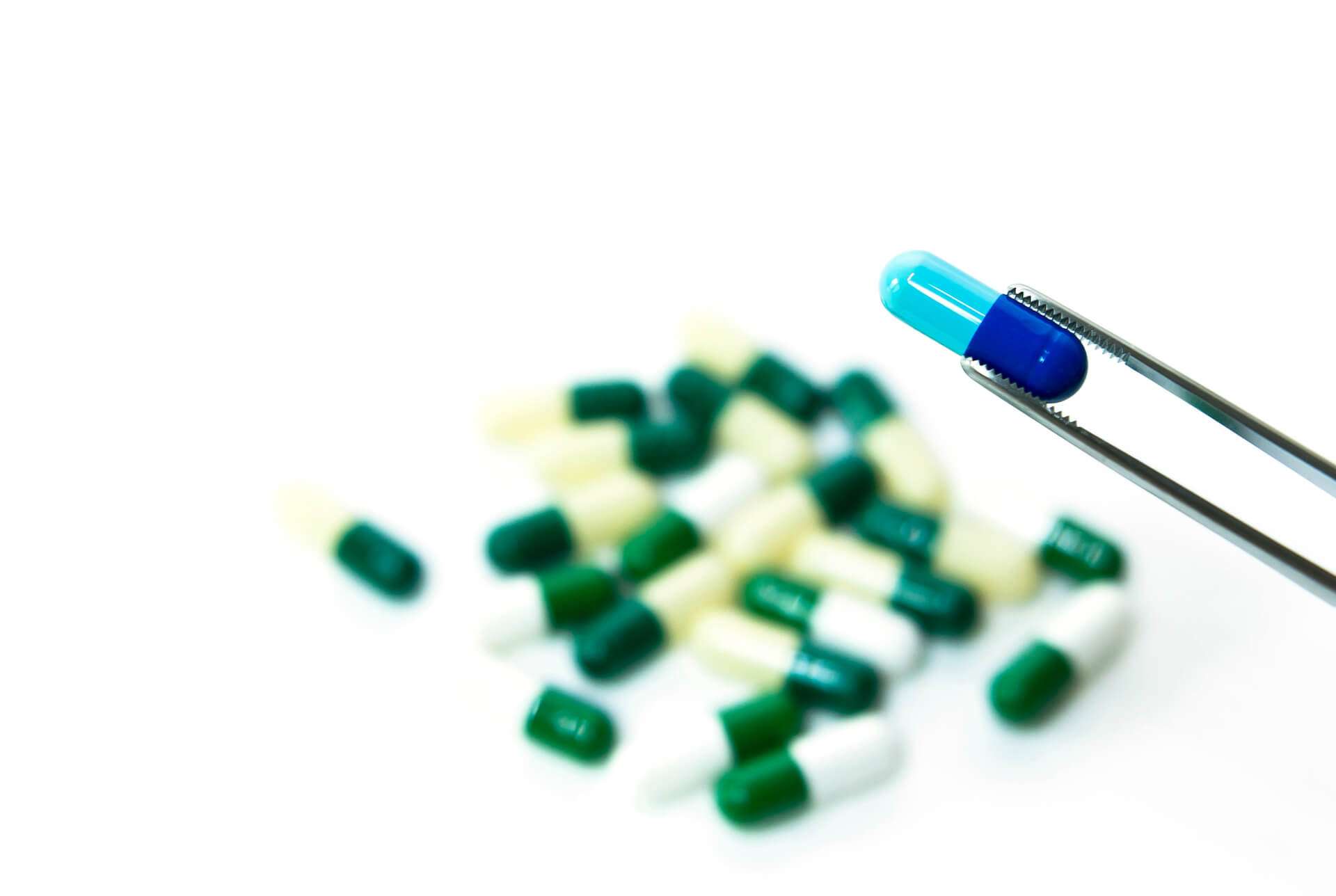"Drug repurposing" as a strategy against coronavirus.

It is not only in vaccine development that there are global efforts. Conventional drugs against SARS-CoV-2 infections are also being developed worldwide. Not only are new active substances being sought, but tests are also being carried out to see whether existing drugs could be effective against the virus.
The WHO-organised "Solidarity Therapeutics Trial" is the world's largest study to date looking at the re-functioning of existing drugs for covid-19 treatment. Over a period of approximately six months, the trial tested the effect of a number of drugs on covid sufferers. This study shows that drugs such as remdesivir, hydroxychloroquine, the combination drug lopinavir/ritonavir and interferons, which were previously considered promising, have little to no effect.
Three major classes of drugs in particular are the focus of repurposing:
- Antiviral drugs i.e. virustatics
- Immunomodulators
- Drugs against pulmonary and cardiovascular diseases.
Important here is not only the efficacy, but also in which stage of the disease these drugs are given, because not all of them are effective in every phase of the disease.
Virustatics
Virustatics are drugs that, at least usually, have no effect on humans, but only on the replication of the virus. Almost all viral drugs have similarities to the so-called nucleotides, the building blocks of DNA. Because of these structural similarities, these drugs are inserted into the viral DNA in place of the nucleotides, breaking the DNA strand and preventing the virus from replicating further. Antiviral drugs that show promise include the influenza drug favipiravir and the antibody leronlimab. These have shown an improvement in symptoms in initial studies. Substances still in development include the kinase inhibitor ATR-002, which has inhibited viral replication in laboratory tests, and APN01, which has been developed against SARS-1 and prevents the virus from entering the lung cells.
Immunomodulators
There are a number of possible candidates for immunomodulators. These are designed to prevent an exaggerated reaction of the immune system without suppressing it completely. The glucocorticoid dexamethasone has shown that the use of immunomodulators can reduce mortality. Many immunomodulators under consideration are so-called monoclonal antibodies. These intervene at the molecular level in processes of the immune system and can thus attenuate the disease. Of these, around 20 substances are on the shortlist, the efficacy of which is currently still being tested.
Drugs for the treatment of lung and heart diseases
Drugs used to treat lung diseases are primarily intended to help combat the damage caused to the lungs. For example, the drug Solnatide is used to restore damaged membranes in the lungs. The substance BXT-25 is thought to improve the oxygen uptake of the lungs and the peptide substance FX06 is thought to be used to treat damaged vessels in the lung tissue. The efficacy of the substances mentioned is still being tested.
Since Covid-19 has been shown to increase the risk of blood clotting, drugs are now used to prevent thrombosis and embolism. Mostly the heparin analogue enoxaparin is used. In addition, the two blood thinners edoxaban and rivaroxaban, which are not related to heparin, are currently being used. Other medications used include antihypertensive drugs, which may have a positive effect on sequelae of Covid-19. There is also evidence that concomitant use of ACE inhibitors may have a positive effect on the course of the disease.
Other types of drugs
There are also some drugs under discussion that previously had completely different indications. The substance niclosamide, for example, which is actually an anti-bandworm agent, is supposed to help the cells to remove harmful substances. This function is often deactivated in cells infected with the virus. Camostat mesilate and brilacidin may be suitable because of their anti-inflammatory properties, and anti-cancer drugs such as asunercept and plitidepsin are also being considered for use.
All the drugs mentioned are just a few examples. There are many drugs that could be helpful in the fight against SARS-CoV-2. So, in combination with newly developed drugs and the hoped-for vaccination, the chances of a new effective standard therapy are good.
https://scienceblog.at/drug-repurposing-arzneimittel-zur-behandlung-der-coronavirus-infektion
https://www.medrxiv.org/content/10.1101/2020.10.15.20209817v1
https://fopi.at/therapeutische-medikamente-gegen-covid-19-repurposing-als-loesungsansatz/

Markus Falkenstätter, BSc
Last updated on 29.10.2020
Your personal medication assistant
Browse our extensive database of medications from A-Z, including effects, side effects, and dosage.
All active ingredients with their effects, applications, and side effects, as well as the medications they are contained in.
Symptoms, causes, and treatments for common diseases and injuries.
The presented content does not replace the original package insert of the medication, especially regarding the dosage and effects of individual products. We cannot assume liability for the accuracy of the data, as the data has been partially converted automatically. Always consult a doctor for diagnoses and other health-related questions.
© medikamio